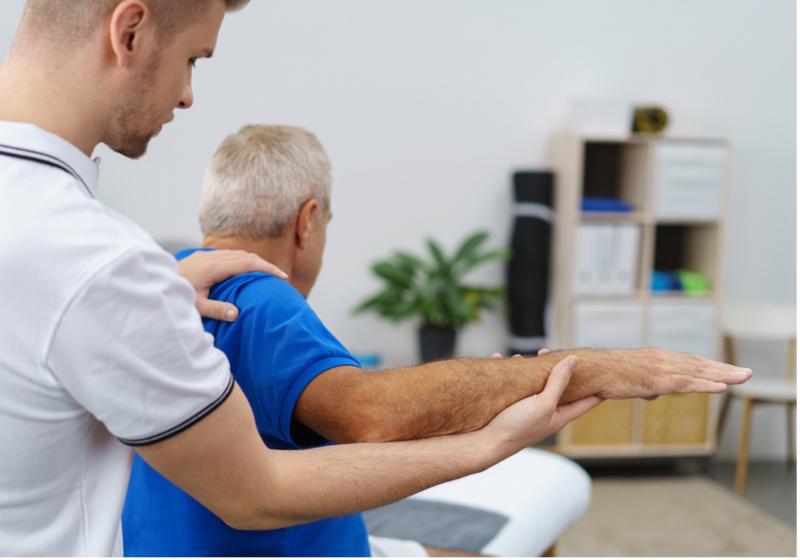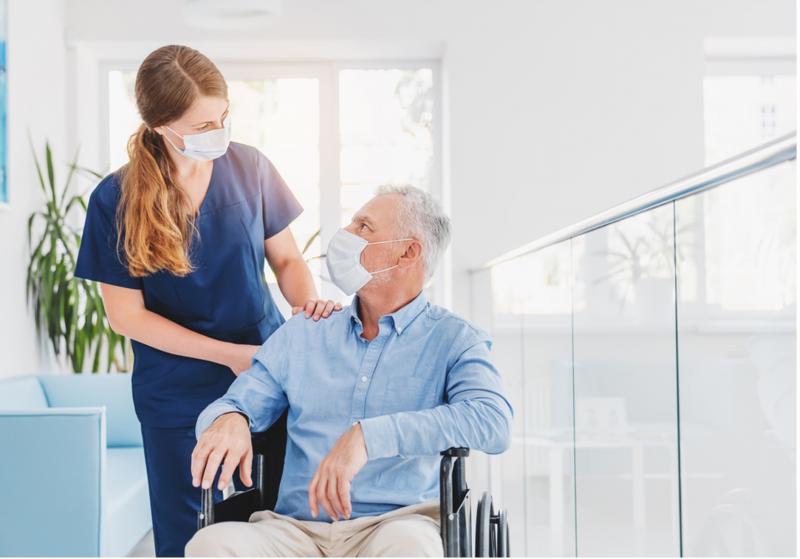Elective Surgery for Elderly Patients: 7 Tips for a Better Recovery
Just because a surgery is “elective” doesn’t mean that you shouldn’t prepare for it with the same rigor that you would a “mandatory” procedure, especially if you are an older adult. In fact, proper preparation is key for a smooth surgery recovery regardless of whether or not it’s elective. Here are seven things you need to know before you slip into a hospital gown for your procedure:
Ask plenty of questions.
The older you get, the more time you’ve spent in the healthcare system. Getting a surgical procedure, especially a minor one, may seem like old hat to you at this point. However, don’t let your experience with the healthcare system lure you into a sense of complacency. Just because you’ve been to the doctor a lot doesn’t mean that you shouldn’t seek to educate yourself about the procedure. Surgery is surgery, and you should make the effort to learn everything you can about what will happen before, during and after the procedure.
Have an expert on board.
Just as children have different healthcare needs, so do older adults. Unfortunately, until recent years, many doctors treated elderly patients as if they were still young adults or middle-aged, just with more wrinkles, even though this isn’t the case. Now the rise of interest in geriatric medicine has resulted in doctors, nurse practitioners and other medical experts who specialize in older adults and their healthcare needs. While not every healthcare team will be able to have a geriatrician on staff — there aren’t enough of them yet — if that is an option for you, it can lead to a more optimal surgery outcome and faster recovery.

By stockfour / Shutterstock.com
Get moving as soon as possible.
Mobility is incredibly important for avoiding complications after surgery, and this is even more important for older adults, who are more prone to blood clots and bone and muscle loss (all of which can occur if you stay immobile for too long after surgery). However, moving around can be a double-edged sword for the elderly, as having a medical procedure makes you even more vulnerable to tripping and falling. Your doctor may actually have you perform exercises before the surgery to make sure that you are strong enough to lift yourself out of a chair and move around with certainty. They will also likely give you guidelines for how soon you can move after surgery and what exercises to do to get your blood moving. Commit to following these exercise routines before and after your procedure and ask your doctor if you have any qualms about them.
Stay hydrated and well fed.
As you get older, your metabolism slows down, so you might find yourself eating only one full meal a day and just snacking the rest of the time. You might also not pay as much attention to how many nutrients you are getting in terms of proteins, carbohydrates, fats, sugars and vitamins. Some older adults also try to curb their fluid intake for fear of bladder leakage, which can backfire and lead to dehydration. While you might not feel hungry or thirsty, it’s paramount that you give your body what it needs to heal itself before and after the surgery. Talk to your doctor about how much water you should be drinking and what healthy meals you can eat.

By Dragana Gordic / Shutterstock.com
Delay major life decisions.
Having surgery can temporarily impair your decision-making skills, even in young healthy adults. Anesthesia can disorient you for hours or days and even result in postoperative delirium. Post-surgery medication can also make you drowsy or confused. If you have any major life decisions, either wrap them up well before the surgery or delay them until several months afterward to give yourself time to recover. After the surgery, you need to be focused on your health, not on making life choices that will have long-term implications for your well-being down the line.
Prep your home ahead of time.
If you prefer to live your life spontaneously, post-surgery is not the best time to fly by the seat of your pants. You will be much more comfortable if you prepare your home before your surgery is scheduled. Purchase some post-surgery clothing, get some reusable ice and heat packs and set up a calendar for your friends and family to drop off food. You can also ask your surgical team if they have any advice for recovery tips and devices that can ease the healing process and make you more comfortable in the days following the surgery. Even little tweaks can make a big difference in those first days and weeks.

By Inside Creative House / Shutterstock.com
Keep your caregiver in the loop.
Even if you don’t normally have a caregiver, you might need one in the days following the surgery. If the surgery is simple and has few complications associated with it, then a family member might be able to provide all the care you need. If the surgery is more complex, then you might need to hire an expert caregiver, such as a registered nurse, to help with your recovery period. Make sure that your caregiver is aware of your doctor’s instructions for diet, exercise, pain management and more following the surgery. You may even wish to bring them to the consultation appointment with you so they can take notes. Confirm all the information with them ahead of your surgery so you don’t have to worry about it afterwards.
Follow these seven tips for a better recovery after your elective surgery. Remember to always ask your provider if you have questions or concerns and to prepare for your procedure with the same care as you would a non-elective surgery. Best wishes for a quick and easy recovery!
More to Read:
Previous Posts:
Next Posts:




